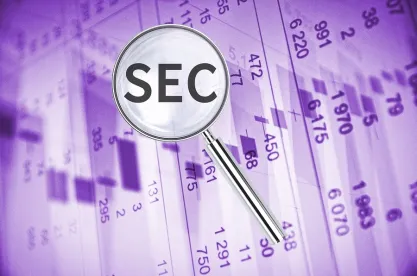Last month the SEC brought an enforcement action illustrating how cross-trades can trip up a manager of a private fund. The SEC’s settlement with investment manager Lone Star Value Management LLC was based on allegations that the manager carried out a series of cross-trades among funds it managed without disclosing to the client in writing that it was acting as a principal and obtaining the client’s consent. In addition to Lone Star, the SEC also sanctioned its founder, sole managing member, CEO, and portfolio manager for violations of Section 206(3) under the Advisers Act and Rule 206(4)-7 thereunder relating to principal transactions.
According to the SEC’s Order, Jeffrey Eberwein founded Lone Star in 2013 and over the next several years created three funds, including one – the “Investors Fund” – into which Eberwein invested $35 million of his own money, owning 35% of the Investors Fund. Lone Star served as investment manager to all three funds and served as investment adviser to a separately managed account. In 2014, Lone Star carried out nineteen cross trades between the Investors Fund and another of Lone Star’s funds, and in 2015 Lone Star carried out two more cross-trades trades, this time between the Investors Fund and the separately managed account, all without complying with the restrictions on Section 206(3).
The SEC’s Order stated that Lone Star had approximately $150 million of assets during the period. It filed with the SEC as an exempt reporting adviser before March 2015 when it registered under the Advisers Act, then later withdrew its registration in 2018.
Weren’t these cross-trades, not principal trades?
Yes, but when a cross-trade involves a fund, it can also be a principal trade. Section 206(3) prohibits an investment adviser, “acting as principal for its own account,” from knowingly selling any security to or buying any security from a client, without disclosing to the client in writing that it is acting as a principal and obtaining the client’s consent. The SEC staff has stated that an adviser to a fund in which the adviser or its principals have sufficient interests may be acting for their own account, turning what appears to be a simple cross-trade (subject to general fiduciary requirements) into a principal trade (subject to the notice and consent requirements of Section 206(3)). ABA Subcommittee on Private Entities (Dec. 8, 20015). The SEC has brought and settled enforcement actions based on this view of the statute. See, e.g., Gintel Asset Mgmt., et al, Advisers Act Rel. No. 2079 (Nov. 8, 2002).
When does an adviser have a sufficient interest in the fund?
That was unclear until 2006 when the SEC staff issued a no-action letter stating that it does not view Section 206(3) as applying to a transaction between a client account and a fund whose adviser and its controlling persons in the aggregate own 25% or less. Gardener Russo & Gardner, (June 7, 2006). As noted above, Eberwein owned over 35% of the Investors Fund.
Why did the SEC bring the case if Lone Star was an exempt reporting adviser?
The restrictions on principal trades in Section 206(3) apply to both registered and unregistered advisers. Thinking that it didn’t apply might have been one of the reasons that Lone Star failed to comply. In contrast, Rule 206(4)-7 (the Compliance Rule) applies only to registered advisers. Lone Star was not registered with the SEC when it arranged the 2014 principal trades, but it had registered at the time of the 2015 principal trades—hence the allegation of a Compliance Rule violation.
How did the SEC uncover the violations?
The SEC Order does not explain how it discovered the principal trades, but it was most likely during an examination conducted after Lone Star had registered. The enforcement action illustrates that the SEC may prosecute violations of the Advisers Act that occurred before an adviser registers under the Advisers Act, which it finds only after the adviser has registered. This is an important point for the many exempt reporting advisers that may eventually need to register.
What happened?
In settlement of the allegations, the SEC found violations of Sections 206(3) and (4) of the Advisers Act and the Compliance Rule. Lone Star agreed to a civil monetary penalty of $100,000 and was censured; Eberwein agreed to a civil monetary penalty of $25,000. Both received a cease and desist order.





 />i
/>i

